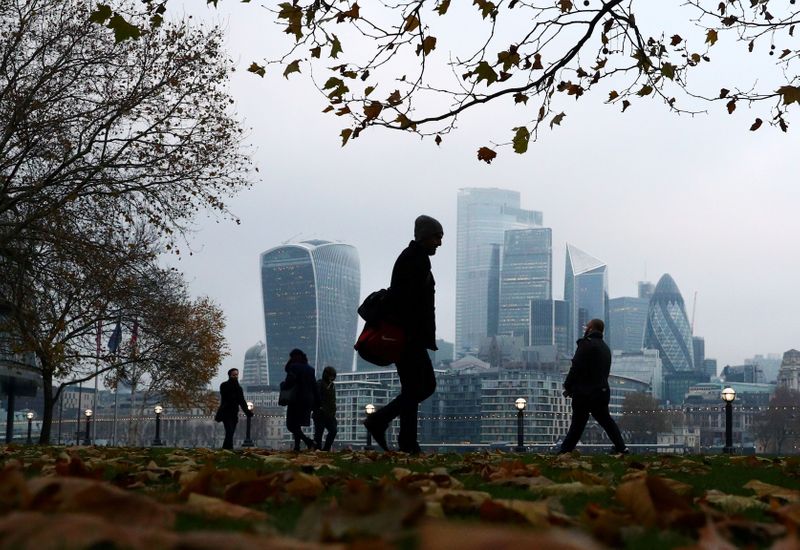LONDON (Reuters) - Britain narrowed its current account deficit by more than expected in the last three months of 2019, but much of the improvement was due to volatile swings in gold trade, official data showed on Tuesday.
The deficit - a long-standing concern for investors which is back in focus as the coronavirus crisis hammers financial markets - stood at 5.6 billion pounds in the fourth quarter, down from nearly 20 billion pounds in the previous three months.
At 1.0% of gross domestic product, it was Britain's smallest current account deficit since the second quarter of 2011 and was also lower than a median forecast of 7.0 billion pounds in a Reuters poll of economists.
But excluding the often large changes in non-monetary gold and other precious metals - which reflect London's status as a global financial center - the gap stood at 17.1 billion pounds, down by less than 2 billion pounds from the third quarter.
Former Bank of England governor Mark Carney described Britain as being reliant on the "kindness of strangers" in order to plug its balance of payments shortfall.
Britain is now set for a huge increase in public spending, and its borrowing, to counter the effects of a near shutdown of its economy to slow the spread of coronavirus.
In 2019 as a whole, which smoothes out the swings in precious metal trading, the overall current account deficit narrowed to 3.8% of gross domestic product from 3.9% in 2018, the Office for National Statistics said.
It confirmed Britain's GDP flat-lined in the fourth quarter, unchanged from a previous estimate.
The household savings ratio rose to 6.2% from 5.0% in the third quarter, suggesting caution on the part of consumers in a period which included a national election.

Economists are forecasting a steep contraction in economic growth in 2020 in Britain, and in other countries around the world, as a result of the coronavirus crisis.